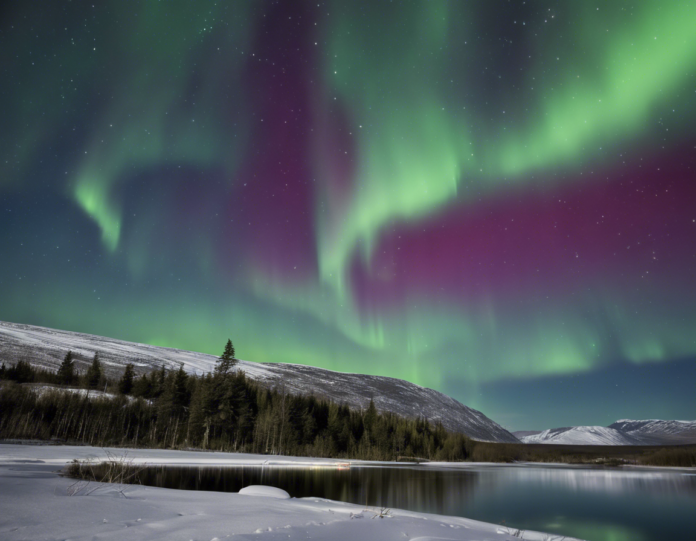Are you looking for a magical experience to brighten up your Saturday night? Why not consider chasing the mesmerizing Northern Lights or Aurora Borealis? These stunning natural light displays are a bucket-list item for many travelers looking to witness the beauty of the heavens. If you are planning a night out under the stars to catch a glimpse of this awe-inspiring phenomenon, it’s essential to be prepared and informed. In this comprehensive guide, we will provide you with all the essential information you need to make the most of your Saturday night Northern Lights forecast.
Understanding the Northern Lights
The Northern Lights are a natural phenomenon that occurs when charged particles from the sun interact with the Earth’s atmosphere. These particles collide with gases such as oxygen and nitrogen, releasing energy in the form of colorful lights that dance across the sky. The most common colors of the Northern Lights are green and pink, but you may also see shades of red, yellow, blue, and violet depending on the atmospheric conditions.
Best Places to See the Northern Lights on a Saturday Night
For the best chances of witnessing the Northern Lights on a Saturday night, you’ll want to head to locations known for their clear skies and minimal light pollution. Some prime spots for viewing the Aurora Borealis include:
-
Scandinavia: Countries like Norway, Sweden, Finland, and Iceland offer excellent opportunities to see the Northern Lights due to their proximity to the Arctic Circle.
-
Canada: Places like Yukon, Northwest Territories, and Nunavut provide ideal conditions for observing the Aurora Borealis.
-
Alaska: The Last Frontier is another fantastic location for spotting the Northern Lights, especially in remote areas away from city lights.
Planning Your Northern Lights Expedition
To maximize your chances of seeing the Northern Lights on a Saturday night, consider the following tips:
-
Check the Forecast: Keep an eye on the Northern Lights forecast leading up to your Saturday night expedition. Websites like the Space Weather Prediction Center can provide valuable insights into the predicted aurora activity in your area.
-
Choose the Right Time: The best time to see the Northern Lights is typically between 10 PM and 2 AM when the sky is darkest. Plan your excursion accordingly to increase your chances of witnessing this spectacular display.
-
Dress Warmly: Remember that Northern Lights viewing often involves spending long periods outside in cold temperatures. Dress in multiple layers, including insulated clothing, hats, gloves, and thermal socks to stay warm and comfortable.
-
Find Dark Skies: Light pollution can diminish the visibility of the Northern Lights. Seek out dark sky locations away from city lights for the best viewing experience.
Saturday Night Northern Lights FAQs
-
What Causes the Northern Lights to Appear?
The Northern Lights are created by solar particles colliding with gases in the Earth’s atmosphere. The colors of the Aurora Borealis depend on the type of gas particles being struck. -
Is It Possible to Predict the Northern Lights?
While it is challenging to predict the exact timing and intensity of the Northern Lights, scientific agencies provide forecasts based on solar activity and atmospheric conditions. -
Do the Northern Lights Only Appear in the North?
The Northern Lights are typically visible in high-latitude regions near the Arctic and Antarctic circles. However, during periods of increased solar activity, they can sometimes be spotted at lower latitudes. -
What Should I Bring for a Northern Lights Expedition?
Essential items to bring include warm clothing, blankets, hot beverages, snacks, a camera with a tripod, and a star map to help navigate the night sky. -
Can Cloud Cover Affect Northern Lights Visibility?
Yes, clouds can obstruct your view of the Northern Lights. It’s best to choose a location with clear skies for optimal viewing conditions.
Saturday night Northern Lights expeditions offer an enchanting opportunity to witness one of nature’s most captivating phenomena. By understanding the science behind the Aurora Borealis, choosing the right location, and planning ahead, you can increase your chances of experiencing this breathtaking spectacle. So, bundle up, head to a dark sky destination, and prepare to be amazed by the dancing lights of the Northern Lights on a magical Saturday night.







